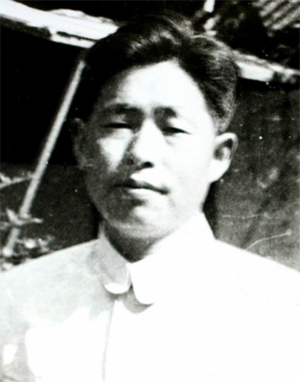 |
Korean composer of Chinese army song was to be honored in Gwangju
A commemorative ceremony to mark the 30th anniversary of the death of composer Jeoung Yul-seong (1914-1976), who composed the Chinese Liberation Army Song, is on the verge of being cancelled due to budget problems. An organizing committee has thrown its efforts into raising the estimated 500 million won necessary to hold the Jeong Yul-seong International Music Festival in Jeong's hometown, Gwangju. However, with the Ministry of Culture and Tourism and the Gwangju City Government showing a lukewarm response, the organizing committee has not secured a penny for the music festival, four months before the event's scheduled opening. Early this year, the Ministry of Culture and Tourism pledged to provide 20 million won in ad spending and China's culture ministry showed interest, as well. However, the mood turned when the Gwangju City Government expressed its reluctance in supporting the music festival.After graduating Sungil School in Gwangju, Jeong moved to China at the age of 19 to fight against then-imperialist Japan. In 1937, Jeong majored in composition at Lu Xun Art School and became a member of the Chinese communist party. He composed about 360 songs, including "The Eighth Route Army March Song" and "Yenan Song." Jeong was adored and respected by the Chinese, with more than 80 percent of China's 1.3 billion people knowing his songs today. ChoongAng University professor Roh Dong-eun, 60, head of the festival's organizing committee, said that preparations should have been completed six months before the festival's planned opening. "A controversy over Jeong's birth site and a leadership struggle became obstacles in gaining the support of administrative authorities," Professor Roh said. Professor Roh urged Gwangju to use the festival to focus on shedding light on those with artistic aspirations. Professor Roh, who played a key role in documenting the life of Jeong, at one point almost forgotten over the past half century due to ideological spats after the separation of the Korean peninsula, said, "The situation will become different if Gwangju, as a culture-oriented city, appropriately evaluates the internationality, diversity, and purity of Jeong's art that covers all of South and North Korea and China." Professor Roh continued, "The first Jeong Yul-seong International Music Festival last year attracted about 4,000 Chinese tourists and allowed Gwangju citizens to have a sense of artistic pride. We could make his songs more public and build his memorial center, but only if this year's music festival is successful." With regard to the fate of the international music festival, Professor Roh said, "While [famed Korean composer] Yun I-sang's songs hope for reunification, Jeong Yul-seong's works praise peace and friendship in northeast Asia. The festival could become one of the representative musical events in Asia if we organize a region-wide music contest and open festival sites in Gwangju, Beijing, and Pyongyang, following Jeong's traces."





